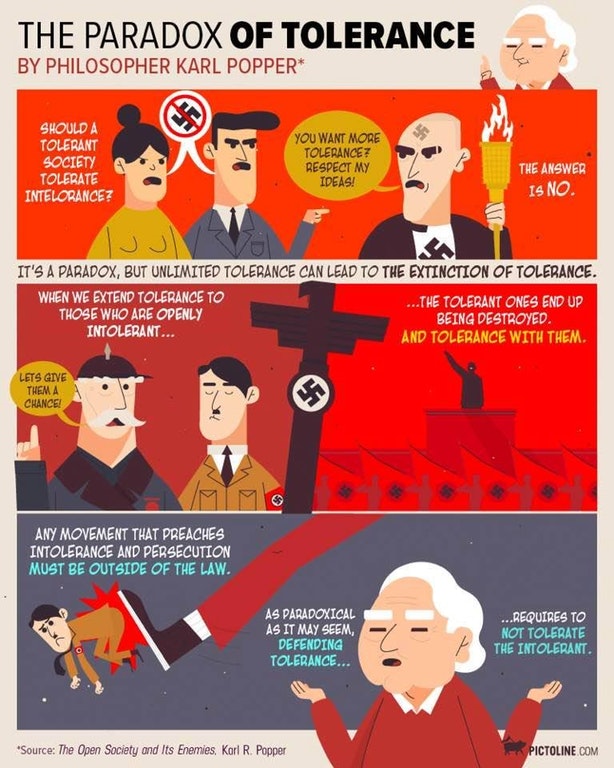Please join my Patreon for more articles like this one when they are written. With a paid Patreon membership you’ll also get a free short story once a month, a chapter. month in an on-going Patreon exclusive novel, access to member only polls, and free swag ever so often. Join here.
Obviously for myself, a writer, and you, a reader, the title is a no brainer. Sadly, for many others, it seems to be their go to solution. Beyond the censorship issues, the repressing ideas, and the stifling of diversity of voices, banning a book is an indictment on the very beliefs those who list undesirable texts. In trying to protect what they believe, they admit that their personal ideology is too fragile to withstand a single instance of contradiction.
One of the first arguments they will throw out is, “This material is inappropriate for children.” If we are discussing The Joy of Sex in an elementary/primary school, then, of course, that is inappropriate. However, the books they are casting out aren’t those. The dangerous stories are things like And Tango Makes Three and The Handmaid’s Tale. Now, would I put The Handmaid’s Tale in the hand of a First or Second grader? Probably not, but even if I did, does anyone honestly think they would care to read it or understand the themes within? Not likely, so why the rabid fear?
For those unaware, And Tango Makes Three is a picture book about two male penguins that have mated and take care of a rock in the hopes of having a child like all the other penguins. Eventually, an egg without parents (I don’t remember the circumstances) is available, so the zookeepers trade out the rock for the egg while the two male penguins are asleep and viola, they soon have a baby penguin, Tango. Somehow, the message that two same sex beings can take care of and show parental love to a child is dangerous. Don’t ask me how. But banning this book from elementary school libraries won’t change the fact that thousands of same sex couples have children and those children attend school. You can’t ban reality.
If we put Slaughterhouse Five or The Satanic Bible in the libraries of high school/secondary schools, if the students have no interest in reading the books, it will collect dust. By banning any book, you turn it into a taboo and what pre-teen or teenager isn’t going to rebel and immediately pick it up. Like Stephen King often says, “Go out and read banned books. See what they don’t want you to know.”
Ultimately, the real reason any group bans a book is because the ideas within challenge what they believe; not what they see as appropriate, but WHAT THEY BELIEVE. If a group thinks same sex couples shouldn’t be acknowledged as appropriate parents, then ban a book that supports “love from any kind of parent is important.” If we don’t like that society is drifting away from theocracy and towards one that empowers people from all walks of life with personal agency, ban The Handmaid’s Tale. Don’t like a certain curse word, sex, and realistic, negative depictions of war, ban Slaughterhouse Five.
Book banners are afraid that simple, progressive ideas are more powerful than those they hold and feel everyone else should hold. They’re correct. That’s why they want them suppressed.
But, if their ideas can’t stand up to criticism, especially the kind found in literature, one should ask how fragile those concepts and beliefs truly are. A solid, well-founded belief will withstand any barrage of critical thought. We only have to look to the scientific community to see that in action. When someone has a theory or has the results of an experiment or research project, they send it out into the world via scientific/medical journals. Other professionals read these articles and immediately begin picking the results and theories apart, requiring those who hold them to defend their position. It can get heated, but in the end, when the dust settles, they progress forward in their understanding together. There will always be hold-outs, but they will always be required to defend and prove their position.
Somehow, we don’t require that of the new media and their insistence to rain down a deluge of opinion pieces. If one is to critique their opinion, or the opinion of those who listen to them, everyone is accused of oppression and violating their First Amendment Rights (something they seem to be missing is that the First Amendment only guarantees the government won’t punish you for what you say, unless it’s to incite hate or a riot). Still, apparently banning books isn’t a violation. Again, don’t ask me why.
There are those who will listen to pseudo-science and opinion pieces as if they are the Truth handed down from Heaven. There’s little one can do about those who are looking for anything to believe in regardless of evidence and reality. There are those who will always think THEIR religion is the correct one and MUST have everyone agree and live by those tenets. There will always be those who look to weaponize the concept of Free Speech to allow hate speech.
The best we can do is stand our ground, keep asking questions, and, hopefully, force those who refuse to listen to at least think. Show the respect they lack. Hold strong in the face of oppression and weaponized censorship.
In the end, when those in power want to ban, silence, eradicate, or condemn something without the willingness to debate the issue with those who vehemently oppose them, I suggest we all question the real reason why they are afraid of the thing they want gone. Perhaps it’s more important than they want us to know, or it’s something that would crumble under critical scrutiny.
Note: There is the argument one should respect the viewpoint of everyone. To a degree, they are correct. This stops at the point of hate speech (as does the First Amendment). Here is an infographic about The Paradox of Tolerance.

Note: Popper never said a movement that preaches intolerance and persecution is outside of the law. He argued that such a group would be in violation of a social contract of mutual tolerance and therefore susceptible to our societal intolerance.
Get this article and more at my Patreon months before they arrive on my website. Exclusive short stories and novel chapters are only available via a Patreon subscription.
